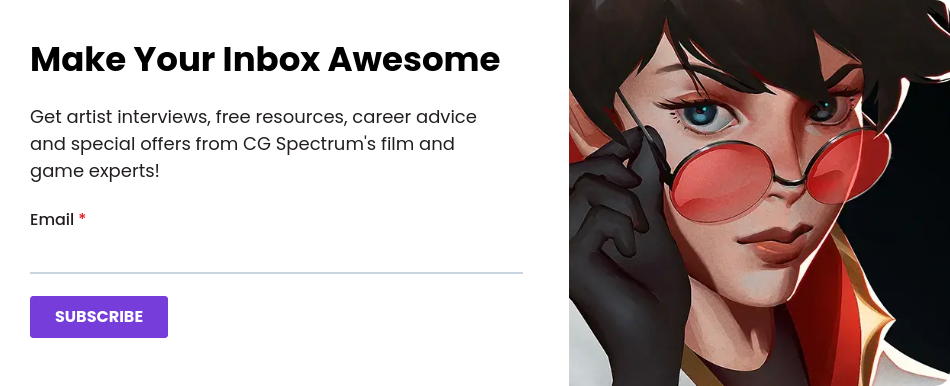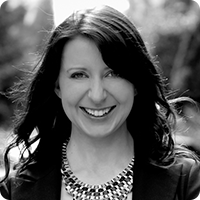Meet Robert Alomar
Robert was an Intelligence Analyst and Linguist in the US Army, but he always had an interest in film. Robert tells how he changed careers, got a compositing job at MPC after graduating from CG Spectrum's Nuke compositing course, and shares his advice for others wanting to get a job in the VFX industry.
Robert, you went from being an Intelligence Analyst and Linguist in the US Army to a Compositor at MPC. How did that happen and what lessons from the US Army serve you in VFX today?
The US Army was a thing that just happened. I got a really good score on my ASVAB and the job sounded interesting.
The main thing the Army taught me that I can apply to VFX is working under pressure; understanding that things can and will change at a moment's notice, and you've just got to adapt and work under pressure.
A lot of people ask me why and how I am relaxed when things go wrong and there's this big thing that needs to get done, and I always say "Hey! At least no one is shooting at me!" Grim way of looking at things, but also very real.
What inspired you to get into the VFX industry?
Well, I always liked making music videos and playing with Photoshop but I never really had a good computer to do so. After I got out of the military, I was looking for my next step and I started looking at all the possibilities. After looking at various university websites, I saw 'film school' and remembered how much I enjoyed doing my videos.
So, I went to this school in San Antonio - The Art Institute, to check out their film department. I showed one professor a few things I had worked on and he asked me a question that would change my life: "You say you want to make movies, but let me ask you, do you want to make Frozen, do you want to make Iron Man or do you want to make 12 Angry Men?" I didn't hesitate and answered "I want to make Iron Man!" and he said "well, Visual Effects is for you." and the rest, as they say, is history.
Why did you choose to learn compositing at CG Spectrum?
I chose to learn compositing at CG Spectrum because the school had what I was looking for. An intensive course, online, taught by industry leading experts that were in the trenches doing the work and making the connections. Also the footage and assets you get to work with in the course are really high quality, which makes for a great start up reel.

How did you get your job as a compositor at MPC?
I had already been talking to one of the MPC recruiters on LinkedIn when I was trying to join the MPC Academy. One day, I uploaded an updated version of my reel on LinkedIn and that recruiter sent me a message saying MPC was looking for Junior Compositors for a short contract. I immediately sent her my CV and reel, and couple days later, I was signing the contract and on my way to Vancouver. Now, being able to say that in my first "real job" in the industry I got to work on movies like CATS and Sonic the Hedgehog is a pretty big accomplishment.
If there's one thing I can tell others is this: "Proper Preparation Prevents Poor Performance". Keep studying and learning new techniques and software. Keep your reel up to date. Keep your LinkedIn and CV ready and up to date. Be prepared.
What was your first week at MPC like? Was it what you expected?
My first week working at MPC was great! It was terrifying and amazing rolled up into one. They asked me to do something (can't remember what) and I panicked because I couldn't remember how to properly do it. I freaked out because I thought I was too new to be working on something so huge and complicated as my first "real job". I thought "They are going to see that I'm a noob and they are going to fire me! I am doomed!" so I started improvising and trying to figure it out by myself to no avail. Then one of the other new artists called me over and asked me how to do something, which thankfully I knew how to do, so I helped him out and then I remembered, we are all in the same boat here. If you don't know something, ask! People will help you because we don't know everything.
What is your favorite software/tool and why? Do you have any compositing hacks you'd like to share?
My favorite software is Nuke, obviously. It is my bread and butter and even though it doesn't cooperate sometimes, it is a great tool. And as far as a "hack" I don't have one per se, but one thing I see a lot in student reels online, is how important it is to match your plate. Make sure that when you are doing any sort of compositing work, whatever you are adding, matches your original plate. This is the first telling sign of knowledge.
There were times where I would be trying to composite a cat to a plate and nothing would look right and I would ask a Lead and he/she would come in and just match blacks, match whites, match a light and BOOM! 90% of the work would be done in 3 minutes! So, remember, MATCH YOUR PLATE.
Where do you see yourself in five years?
In 5 years I would like to be working as a VFX artist full time, hopefully have a staff position at a high end studio. I love superhero movies and sci fi so working in an MCU film would be fantastic. Maybe the GoT prequels, something like that. As far as studios go, Luma Pictures, ScanlineVFX, FuseFX, ILM among others.
To learn more about compositing as a career pathway, read What is Compositing?
Become a compositor in the film industry!
There's no better way to learn than from industry experts who have worked on blockbuster films at top VFX studios around the world. You'll not only learn the technical side of compositing, you'll also get industry insights that you just won't find in a book. Start your VFX journey today!
Related Links




